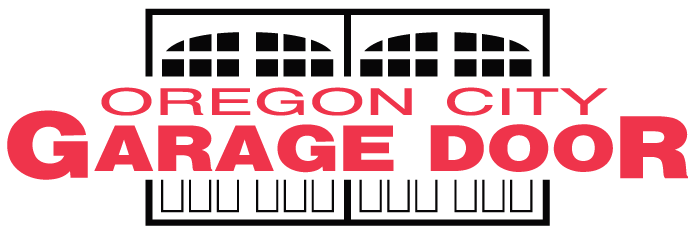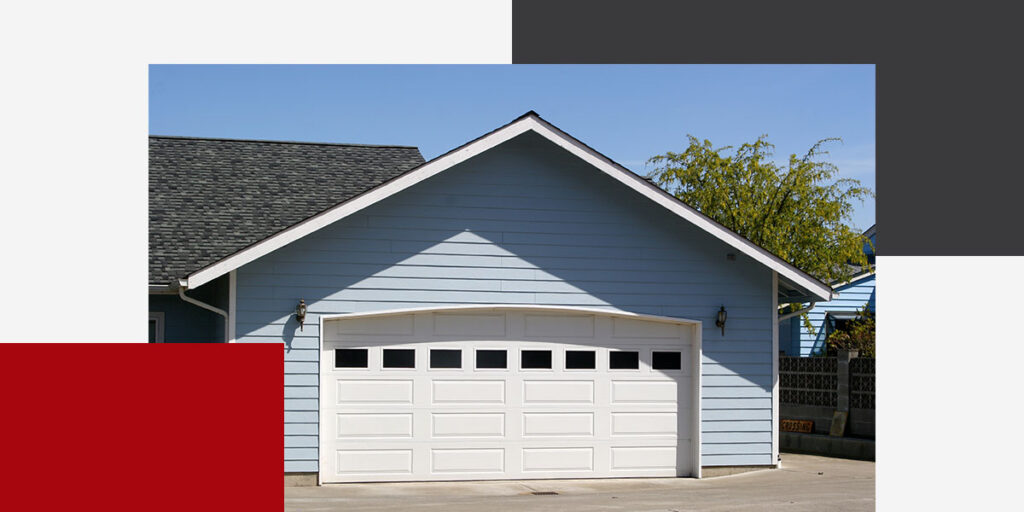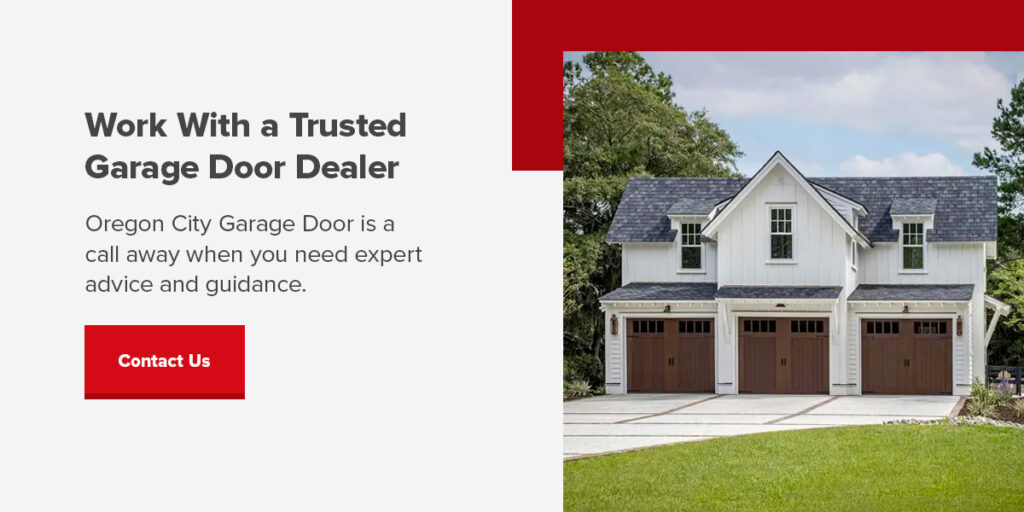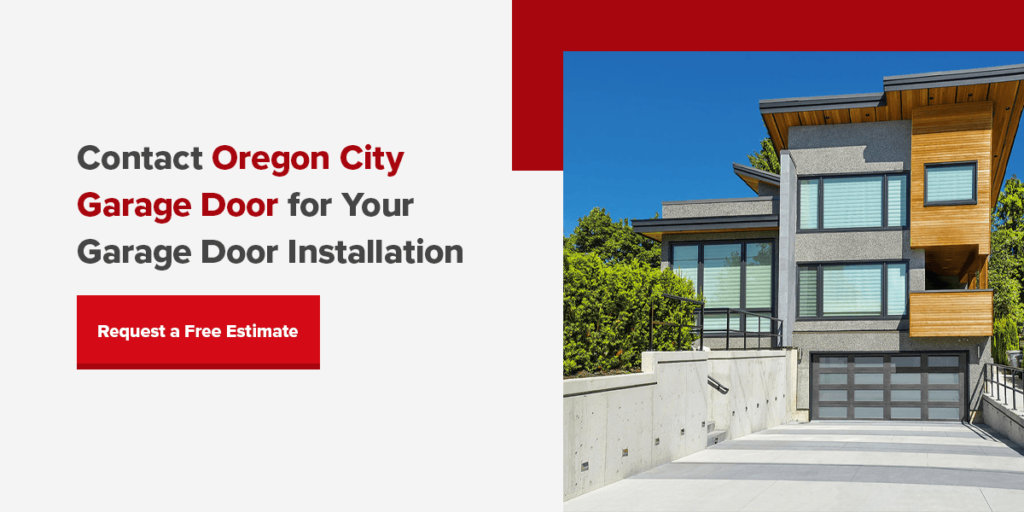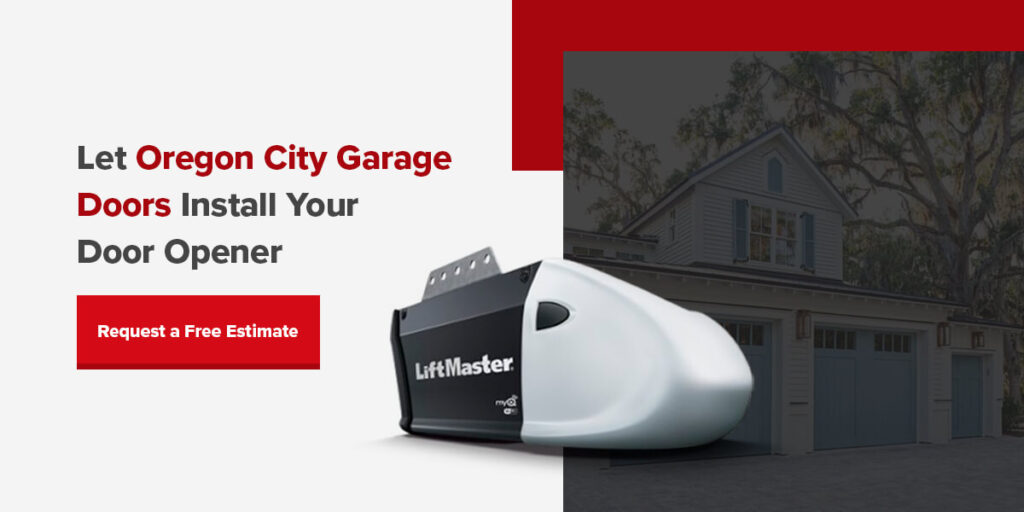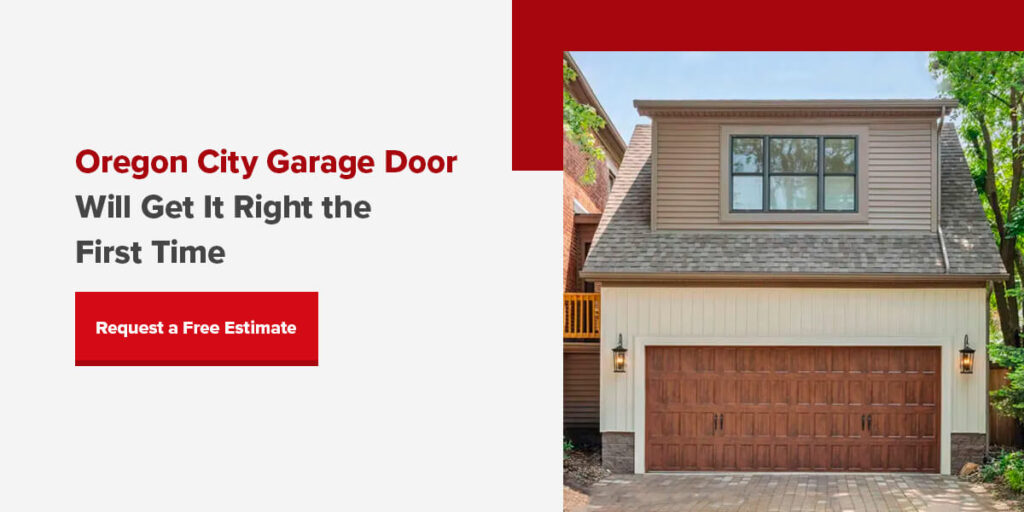Guide to Insulated Garage Doors
When choosing a new garage door for your home, you want a high-quality, durable option that will protect your vehicles and stored belongings. However, you also want to consider insulation. A well-insulated garage prevents energy loss by regulating temperatures, helping you avoid wasting money on excess energy use — but that’s not the only advantage.
Does an insulated garage door make a difference? Learn all about insulated garage doors, how they work and their benefits here.
What Is an Insulated Garage Door?
An insulated garage door is reinforced with material that prevents outside air from entering your garage, and vice versa. These types of doors help ensure cold air stays outside in the winter, so your garage is warm, and hot air doesn’t enter in the summer, so your garage is cool. In comparison, standard garage doors without insulation may have sections that allow air to enter or escape.
Insulation and R-Value
The resistance value (R-value) of garage door insulation relates to the thickness of the insulation and its ability to combat heat flow. The R-value measures the heat conductivity of the insulated material.
Different materials have varying R-values ranging from low to high. The higher the R-value, the better the garage is protected from heat transference. The thickness of the R-value in inches determines how well it insulates. For example, polyurethane spray foam has an R-value of six per inch, an R-value of 12 per two inches, an R-value of 24 per four inches and an R-value of 44 per eight inches.
Garage doors for detached and attached garages have different R-value applications:
- Detached garages: Since they’re not part of the home, detached garages don’t need heavy insulation. Lower R-values like four and six should be sufficient.
- Attached garages: An R-value between 12 and 16 works well with attached garages, although higher values will provide even more protection against heat.
Consulting with a garage door professional can help you better understand R-values and how to choose the right one for your garage door.
Benefits of an Insulated Garage Door
When choosing a new garage door, you should almost always opt for an insulated garage door, especially if you have an attached garage. Why? Here are the main pros of insulated garage doors:
1. Energy-Saving Potential
Installing an insulated garage door helps control the temperature so surrounding rooms don’t experience hot and cold spots due to temperature fluctuations. With fair and even temperature distribution in the garage and adjoining rooms, there is a reduced need to use your heating and cooling system in those spaces. As a result, you can save on your energy bill.
2. Noise Reduction
Do you use your garage as a work area? Installing an insulated door can help create a quieter environment in rooms near your garage, as the insulation creates a sound barrier. This ability also means outdoor noise will be muffled. As a result, the noise of power tools and other equipment you might use in your garage won’t be as loud to others nearby.
3. Increased Durability
Garage doors are sturdier and more durable with added insulation. Depending on the type of insulation, it provides an extra layer of cushioning that supports the door against wind and other forces. You can rely on your insulated garage door to stand up against many kinds of weather and last for years to come, providing you with a great return on investment.
4. Improved Storage Space
Any valuables you’re storing in your garage are better protected when your garage door is insulated. It helps keep cold air out, which can damage fragile items, and helps limit humidity, which can cause certain materials to rust. You’ll have peace of mind knowing you can continue storing your belongings without worrying about damage due to temperature fluctuations.
5. More Comfortable for Alternative Uses
If you’ve converted your garage into a hobby room, you’ll enjoy the benefits an insulated door offers. By ensuring your garage stays warm and cool according to the seasons, you’ll maintain a comfortable atmosphere for your work area all year. Those who work on art in this area can enjoy a regulated environment to store their pieces.
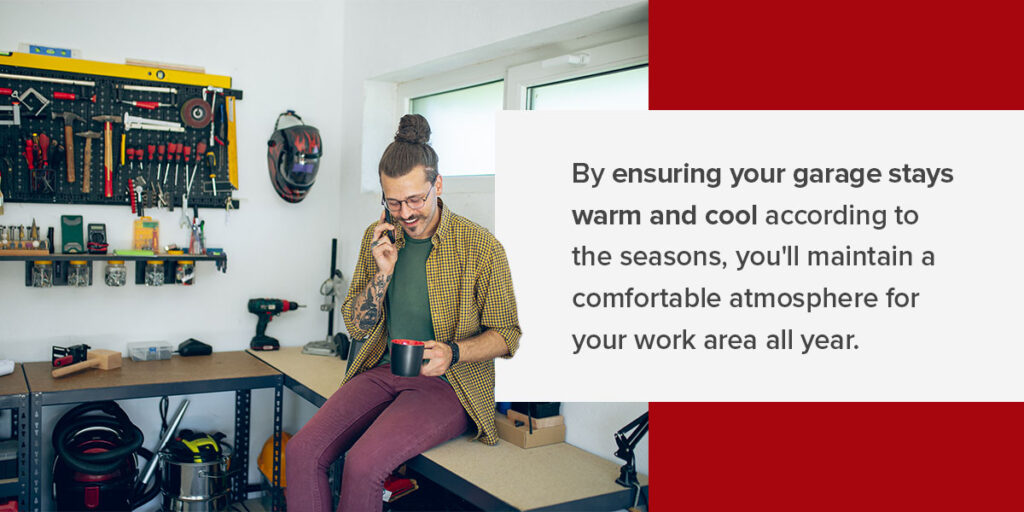
Types of Insulated Garage Door Materials
There are two main types of garage door insulation — polystyrene and polyurethane.
Polyurethane Insulation
This insulation material is foam-based and offers more protection and energy efficiency. The polyurethane foam is inserted between the garage door’s panels behind the door on the inside. The injected foam fills the surface, covering all cracks and openings.
Polyurethane insulation provides improved durability due to the foam’s consistency, as it expands and contracts to accommodate the door’s mobility. It also provides better protection against dents and impact. Most garage door manufacturers prefer using this foam for insulation because of its numerous benefits for residential and commercial properties.
Polystyrene Insulation
Polystyrene is less expensive but offers less protection than polyurethane insulation. A garage insulated with polystyrene consists of polystyrene sheets precut to fit into the garage door panels. This material is lightweight and easy to install, but the drawback is that it doesn’t cover tiny holes and gaps like polyurethane foam, so air can still pass through.
Polystyrene insulation’s advantages include being waterproof and preventing leaks during heavy rainfall. It also prevents mildew from forming. The sheets come in various R-value thicknesses, though they’re ideal for homeowners in warmer climates because they can’t keep cold air out as well as polyurethane insulation.
Call Oregon City Garage Door for an Insulated Garage Door Quote
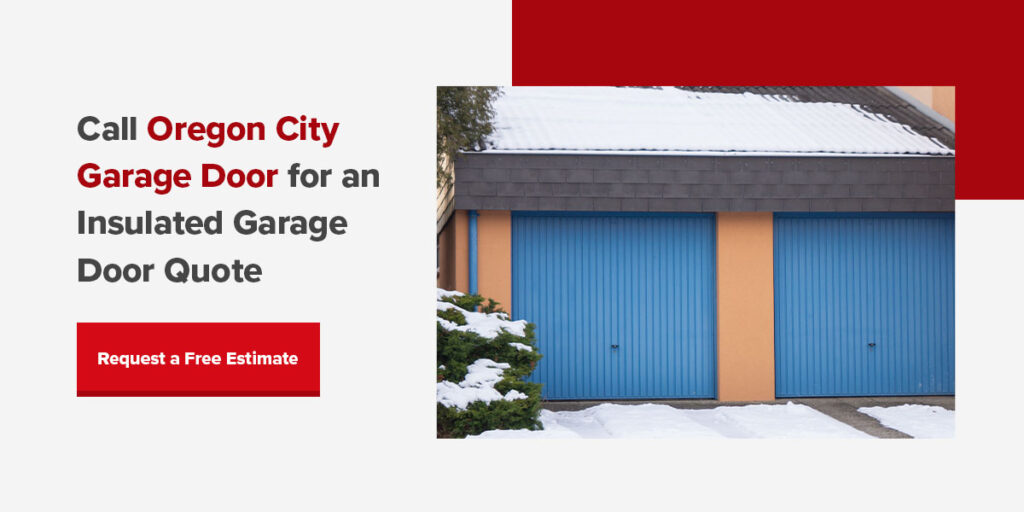
Oregon City Garage Door has an extensive range of garage doors and services for every requirement. Whether you need your current door repaired or serviced, or you want to upgrade to a new insulated door, our professional, efficient and friendly technicians are ready to help.
We’ve served Portland and the surrounding areas since 1992 and have established ourselves as reputable, reliable and trustworthy in the field. Our loyal clients have supported us for years — we’re eager to welcome you to the family!
Let’s discuss your garage door needs. Call us at (503) 662-7665 or request an estimate through our contact form.
How Long Do Garage Doors Last?
For many homeowners, a garage door is more than an entrance — it completes their home’s exterior design and safeguards vehicles and stored belongings. Like every essential element in a home, understanding the life span of a garage door and when it may need replacement is paramount to ensure its durability.
The Average Life Span of a Garage Door
A well-maintained garage door can serve homeowners diligently for years, but its life span can vary depending on its materials. Some common materials and their life spans include:
- Steel and aluminum: Popular for their robustness, these doors may last up to 20 or 30 years if they receive regular maintenance.
- Wood: Exuding timeless elegance, wooden doors may grace your home for a good 15 to 20 years — or more — with proper care.
- Fiberglass and vinyl: These common materials typically offer a functional life span of at least 15 years, but they can often last twice that if you maintain them well.
How Often Should Garage Doors Be Replaced?
While your door can function for years with frequent maintenance and repairs, it is wise to remain vigilant and observe its performance with every cycle. Some factors that may indicate it’s time to replace your garage door include:
- Erratic operation: If your door refuses to open or close smoothly, it may have deeper mechanical issues that cannot be resolved without replacement.
- Audible distress: Excessive noise could indicate that it’s time for a replacement, especially if a technician is unable to fully fix the issue.
- Visible wear and tear: You may want to replace your garage door if it experiences extensive exposure to elements, accidental collision, impact and aging that impact your home’s appearance negatively.
- Recurring repairs: Replacing your garage door may be more cost-effective if it requires frequent repairs, as these fixes can add up and may result in you needing a new door in the end, anyway.
Factors to Consider
Several variables play pivotal roles in determining how long your garage door will last:
- Use: When you open and close your door repeatedly, the door will gradually wear out faster than a stationary one.
- Climate: Constant exposure to elements such as rain, snow, wind and sleet and harsh weather conditions — be it cold, heat or humidity — can accelerate garage door wear.
- Maintenance: Garage doors require regular service for peak function, so an annual inspection by a professional technician can maximize the door’s life span.
- Installation: Professional installation from a certified company can help your door enjoy top function and longevity.
- Materials: The manufacturing materials of your door will affect its longevity, whether you choose a steel option for less denting or chipping or aluminum for less strain on your garage door opener.
Repair or Replace?
In the end, the decision to repair or replace your garage door depends on various factors. The only time that you may need to replace your door is when it cannot be repaired, but otherwise, the choice is up to you.
If you are unsure what you should do, you can ask a professional garage door company like Oregon City Garage Door for advice. Our skilled team members can help replace your door with an option from our large inventory of residential door brands and commercial overhead doors or provide necessary repairs to keep your door working.
Work With a Trusted Garage Door Dealer
Your garage door provides safety, convenience and curb appeal. Considering its importance, making informed decisions about maintenance and replacement is essential, and Oregon City Garage Door is a call away when you need expert advice and guidance. We serve the entire Portland area and are standing by to assess your garage door. Contact us for garage door expertise if it’s time for a change or a checkup.
Guide to Choosing Your Garage Door Color
Guide to Choosing Your Garage Door Color
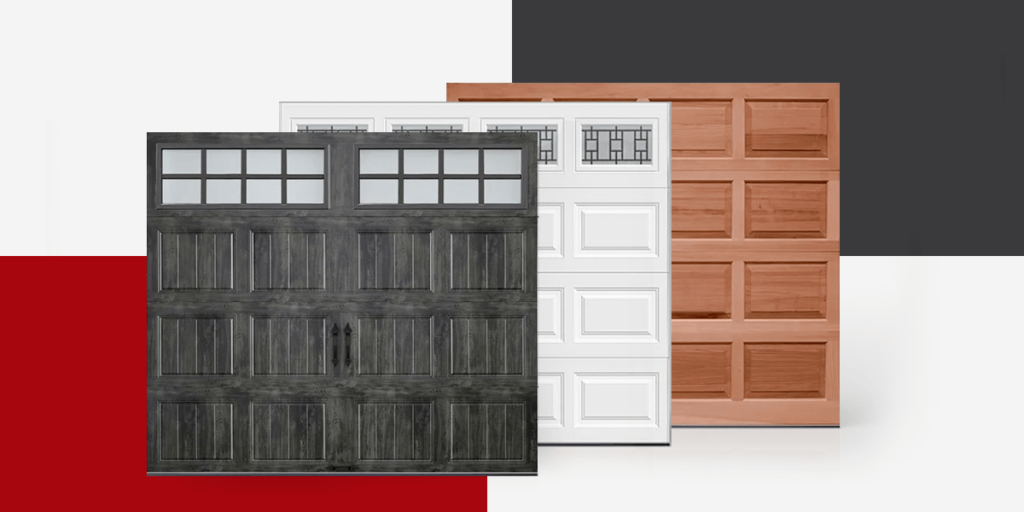
Choosing any color for your garage door may be tempting, especially when you have an array of options. That said, it’s best to consider how different colors can impact your home’s curb appeal, as the wrong selection can affect your house’s appearance in a negative way. With some careful consideration, you can select the best color for your garage door — one that works seamlessly alongside the rest of your house and property.
How Do You Choose a Garage Door Color?
When it comes to choosing the right color, it’s important to understand the outcome you’re trying to achieve. While some homeowners like to attract attention to their homes with bold garage door color choices, others prefer to have their garages’ appearance blend in with their properties. For example, you might prefer to highlight other features of your house by selecting a more subtle color choice for your garage.
Finding balance is important as you consider suitable colors — consider your home’s other exterior colors. These colors often include:
- The field color: This is the main color used on your home’s siding.
- The trim color: This is often the color used on window and door frames.
- The accent color: Areas like your front door and window shutters may be presented in a different color.
When pairing your garage door color with your home’s other exterior colors, visualize how everything would look by contrasting light and dark. For example, matching a dark field color with a light accent color will look different compared to a light field color with dark trim. This way, you can create a more cohesive curb appeal design.
With all of that in mind, here are some of the most popular colors for garage doors for you to consider:
- White
- Blues
- Greens
- Browns
- Grays
- Black
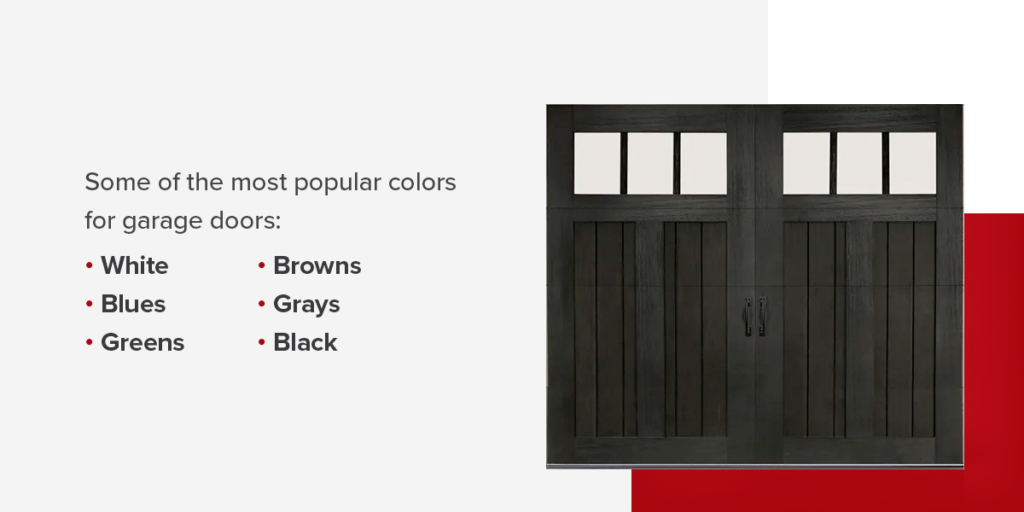
Most Popular Garage Door Color Schemes
It’s beneficial to understand the theory behind colors by revisiting the color wheel and thinking about a few basic color schemes. This approach will help you put color matches into context and avoid mixing random colors because they look appealing.
The color wheel can become complicated, but we’ll keep to the fundamentals and highlight the important aspects. Here’s a breakdown of a few color schemes you may want to incorporate to align your home and garage door’s appearance.
- Primary colors: These are the dominant colors on the color wheel that can be mixed to create secondary colors — red, yellow and blue.
- Analogous colors: Located in close proximity on the color wheel, analogous colors sit alongside each other. These are colors that are similar in depth and hue and would normally blend in well when used together, although some shades can overpower the other colors and should be used subtly. Examples are violet or blue-violet or green and yellow-green.
- Monochromatic colors: A single color portrayed in different shades and hues is monochromatic. For example, you could opt for avocado green trim with an emerald accent color, while the field color is a different shade of green altogether. Although it might seem like too much of the same color, using a monochromatic approach can create an appealing visual flow when used strategically.
- Complementary colors: These colors are situated opposite each other on the color wheel, creating a stark contrast when paired. Examples are purple and yellow. While bold and daring, they can enhance coherence in the right setting.
- Neutral colors: These are base colors like white, gray, black and brown, and softer shades of brown like tan, creme and beige that are made using two complementary colors.
- Warm colors: These are earthy colors that are often associated with seasons like fall, including shades of orange, yellow and red.
Coordinating Your Garage Door Color With Your House Color
Certain colors and shades will match your house’s color better than others. Below, we cover a few popular home siding options and how you can coordinate your garage door color with them for a coherent exterior design.
Brick
A brick home already features natural reds, browns or yellows, which you can use in your favor. Inspect the primary colors in your home’s brick siding, such as red or yellow. Match your garage door using a similar color. For example, a dark chocolate brown may highlight the brick, while a contrasting but complementary brick and garage door combination like red and forest green might stand out more.
Gray or White
These neutral colors offer many potential matches because of their simple yet versatile nature. Still, you may want to avoid similar light colors for your garage door, like gray and tan. These colors can leave your house looking dull. Instead, opt for similar colors that have considerable shade contrasts. For example, if your siding is a gray color, opt for a much darker gray tone for your garage door color.
Beige or Tan
Similar to gray and white, you have many options with neutral colors like beige and tan. Try to steer clear of similar-toned colors. For example, you could choose a dark brown or a wood-stained garage door instead to create a more notable contrast.
Contact Oregon City Garage Door for Your Garage Door Installation
If you need help deciding on the right color for your new garage door, let us help. Oregon City Garage Door offers various garage door types from many industry-leading brands. Browse our selection to find a garage door in a color that suits your vision.
Oregon City Garage Door offers numerous garage door services throughout the Portland area. Whether you need a new garage door, want to replace your garage door opener or require a different kind of garage door service, our team of garage door experts can assist you. Since 1992, we’ve worked with homeowners and business owners to install and repair garage doors, offering quality, comprehensive service you can count on.
If you’re interested in replacing your garage door or need to service your garage door, look no further. Call us at (503) 632-3070 for a free estimate or complete our service request form, and our team will respond promptly.
Guide to Garage Door Technology
Guide to Garage Door Technology
With smart home technology increasing by leaps and bounds, it’s no surprise that even garage doors have brought a progressive approach to an otherwise underappreciated home feature. Now, it’s possible to modify almost anything mechanical or motorized for smart technology and its many uses. Our smartphones open worlds of possibilities with thousands of apps designed to make our lives easier.
Operating your garage door is as easy as pressing a button on your phone. With more functionality options, you no longer need a remote to open and close your door. This guide will explore how Wi-Fi garage door openers work and discuss other innovations, including the Amazon Key In-Garage Delivery option.
With our arsenal of knowledge, let Oregon City Garage Door install the latest garage door openers and accessories for improved security and convenience.
Wi-Fi Garage Door Opener Technology
While you may not necessarily want to replace your garage door remote with your smartphone, the ability to perform the same and additional functions on another device is convenient. If you misplace your remote, your phone will offer the solution. Some features of Wi-Fi garage door openers include the following.
- Mobile app syncing: Many newer garage door opener models use the internet, specifically Wi-Fi, to perform tasks remotely via a downloaded app on a smartphone. The app allows you to monitor activity in and around your garage even if you are not at home. You can also open and close your garage door from a distance if you need to let anyone in.
- Voice commands: The app allows you to activate features like voice control, where you can prompt virtual assistants like Siri or Alexa to operate the garage door on your behalf.
- Push notifications: Receive push notifications each time there’s door activity so you stay on top of things. The app will let you know whether it’s opening, closing or left open too long.
- Programming: Program your door to adhere to a fixed schedule every day or based on activity. For example, program your door to automatically open at the estimated time you arrive from work or secure it at a specific time each night. Or, schedule it to close by default after it’s stayed open for a given period. You can program more advanced models to switch light sensors on and off at regular intervals throughout the night.
Additional Garage Door Opener Smart Technology
Each of our Liftmaster garage door openers works with the myQ smartphone app and provides different functions. Notably, they let you view real-time updates and control your garage door entirely remotely from anywhere with an internet connection. Wi-Fi openers are growing in popularity as the need for improved security measures remains. Other garage door opener smart technology is also available on the market.
- Bluetooth: This technology requires you to be physically close to your garage door to operate it. It is less effective than Wi-Fi, since the connection is not as stable and tends to be intermittent, but it works well if done correctly.
- Geofencing: Our phones are ideal trackers. Some may be able to pick up your proximity due to your location settings and signal the garage door to open when you approach. Geofencing is an excellent addition to garage door openers using smart technology.
- Rolling codes: Your garage door opener sends a new code to your phone every time it opens and closes. Since the codes constantly change, intruders or hackers cannot duplicate them and use your Wi-Fi network to infiltrate your system.
- Live monitoring: Some garage door smart technology systems come with motion-detecting cameras you can place inside and outside your garage. You’ll have total surveillance of your garage surroundings, which you can link to your smartphone and watch remotely.
Amazon Key In-Garage Delivery
Amazon introduced its Key In-Garage Delivery option for Prime members in November 2017, and it’s been a massive success since. This feature allows members to order items online and have a delivery driver drop their parcel in their garage while they’re away. Here’s how Amazon Key In-Garage Delivery works:
- Link your garage to Amazon Key in the Amazon app, then turn on In-Garage Delivery.
- Sign in with your Amazon credentials.
- Select the “Let’s get started” prompt and “Set up a residence.”
- Link your Amazon and myQ accounts.
- Optionally, you can set up a camera with Cloud Cam or another service for further visibility.
- Browse through Amazon and select your items.
- Proceed to checkout and choose “Free Key Delivery.”
- You’ll receive a notification of the estimated delivery time.
- The driver will scan your package when they arrive.
- Once verified, the garage door will open automatically.
- The delivery person will place your parcel inside your garage.
- The delivery driver will wait until the door closes, concealing your parcel safely inside, before leaving.
If you don’t already have one, you may choose to install a camera for maximum security. Then, you can monitor your delivery driver from the moment they arrive until they leave. This feature is only available for Amazon deliveries, not items you receive through other services such as FedEx and UPS.
Benefits of Garage Door Technology
Garage door technology has come a long way in ensuring safety feature enhancement. There are many advantages to installing a garage door opener that is compatible with Wi-Fi and other technology.
- Increased security: Depending on the model, your garage door opener may have a security camera that lets you oversee your garage and home when you are at work or on vacation. The app generates and sends rolling codes to your phone with each door use for added security. You have complete control over access and who gains entry to your home, reducing the risk of break-ins. Most models also have LED lights that brighten the whole outside area, so you and your family are never vulnerable in the dark when you pull up to your home at night.
- Battery backup: Increase security further by ensuring you have a battery backup feature on your garage door. With this, you can still safely operate your garage door if you ever lose power. In addition, if your garage remote battery dies, you can use your phone to control your garage door.
- Safety sensors: A prominent feature of garage door technology packages is the inclusion of safety sensors. They detect any objects that obstruct the doorway by reversing the mechanism to avoid injuring anyone who could be in the way, especially children or animals.
- Utmost convenience: Enjoy remotely controlling your garage door by tapping a button. No need to stand within feet of your garage to command it to open and close and monitor activity any time, from anywhere.
- Seamless operation: Smartphone apps like myQ allow seamless operation with Wi-Fi connectivity. Your internet connection should ideally be strong to work optimally, but it is usually highly effective and reliable. Newer garage door opener models operate quietly, so you don’t have to worry about them disturbing your peace.
- Increased home value: Any security upgrades to your home are beneficial and add value if you ever decide to sell your home.
Let Oregon City Garage Doors Install Your Door Opener
While you may be willing to go to extremes to guarantee your family’s safety, we often underestimate the simplicity of upgrading existing devices to achieve the desired results. Oregon City Garage Door offers various garage door openers with smart technology to give you complete control of your garage and peace of mind knowing your family and belongings are secure.
If you’re ready to take the next step to protect your home, call us at 503-662-7665 or request an estimate so we can get the job done in no time.
Standard Garage Door Sizes
Standard Garage Door Sizes

You’ll need accurate measurements to get a new garage door or replace your existing one. These measurements will be determined by the type of door you have, whether it’s single, double or triple capacity. If you have a customized garage door, the size will differ from the standard sizes that most garage doors come in.
At Oregon City Garage Door, we want you to be sure of the measurements so you’re not left with unpleasant surprises when it’s time for garage door installation. Our team is happy to help with that, but in the meantime, learn more about standard and custom garage door size options that will suit your requirements.
Standard Garage Door Sizes
Garage door sizes differ in various states and according to how many cars they can accommodate, but a few standard sizes are typically available. An important factor to consider is the space available in the garage that will accommodate movement around a vehicle and storage above and beside a vehicle. Consider these spaces, known as the headroom and side room, when measuring the entire garage door.
The garage floor’s depth should be approximately 1 foot to ensure the garage’s full capacity is covered from the floor and both sides to the ceiling. A single garage door doesn’t necessarily mean it’s for a small car — a family-size SUV or small minivan can park in a single garage, but the height must meet the right requirements.
Single Garage Doors
The most common standard single-car garage size is 8 x 7 feet. This could generally fit a sedan or hatchback, although it can sometimes be used for parking bigger vehicles.
The measurement is taken by multiplying the width by the height in feet and inches. Here are a few of the standard single garage measurements using these metrics:
Some standard sizes measured in feet:
- 8 x 7
- 9 x 7
- 10 x 7
- 12 x7
- 15 x 7
- 16 x 7
- 20 x 7
Double or Two-Door Garage Doors
Double garage doors are great for households with more than one vehicle in multiple sizes. Some families have a small-to-medium car they use daily and a larger truck for work, hobbies or recreational purposes. These garages are also great for securing motorbikes, quadbikes, mowers, golf carts and other off-road vehicles.
This means more space is needed for parking, which is exactly what double garages are for. Using the same measurement metrics, double garage doors are commonly found in the following standard measurements:
Some standard sizes measured in feet:
- 12 x 7 or 8
- 14 x 7 or 8
- 16 x 7 or 8
- 18 x 7 or 8
Triple Garage Doors
They may not be as conventional as single and double garages, but triple garages offer the ultimate in space and convenience. They are ideal for storing multiple vehicles and personal belongings and can have one single door alongside two double doors or three single doors.
These doors can be separated by beams that designate each vehicle’s parking space or continue as one long door. Typically, triple garage doors can reach widths of up to 40 feet:
Some standard sizes measured in feet:
- 36 x 8
- 38 x 8
- 40 x 8
Choosing the Best Garage Door Size for Your Home
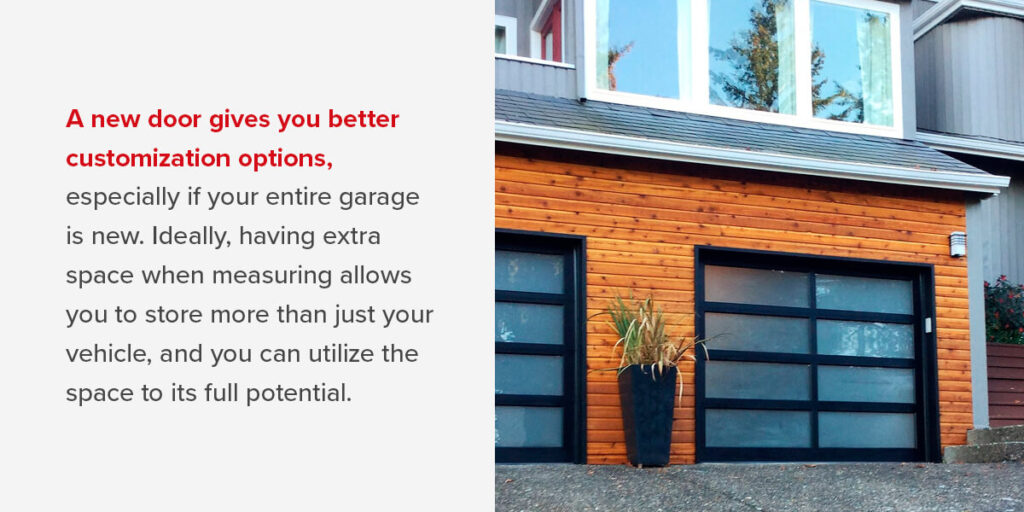
The best and right garage door size for your home depends on whether you are installing a brand-new door or need a new one. For example, if you’ve recently built a garage, you would have had to include the door size to ensure it matches the right measurements for the structure you’ve built. You may also have different measurements if you already have a door and can then take the measurements from it to buy a new one in the same size.
A new door gives you better customization options, especially if your entire garage is new. Ideally, having extra space when measuring allows you to store more than just your vehicle, and you can utilize the space to its full potential.
Garage Door Height Options
Garage door heights vary. Most garage doors are 7 feet tall, but they could measure 8 feet, regardless of whether it’s a single, double or triple garage. For vehicles that hold roof racks or are generally taller, you may need to install a 10-foot-high garage door.
Custom Garage Door Sizes
Anyone who owns an RV or vehicle that requires extra height and length will need a customized garage and door. For example, fitting an RV could mean your garage door will need to reach heights of about 12 feet without having issues entering and exiting the garage. Most attached garages don’t have the space and height requirements to accommodate an RV, so you may need to build a detached garage.
If your custom garage is bigger, consider the following measurements:
Possible measurements for single, smaller customized space:
- 10 x 8 feet
Possible measurements for double garage for taller vehicles:
- 20 x 10 or 12 feet
Other custom garage door sizes will vary in width and height depending on the type of vehicle you need the door for. Ultimately, it comes down to what you want and need. Measurements will be taken based on your existing door to ensure your custom garage door is installed to your exact specifications.
Oregon City Garage Door Will Get It Right the First Time
Regardless of the size of the door you install, our team will help you get the right measurements for your new investment. Use our Door Imagination System if you want an idea of the door style and size beforehand.
Our friendly, efficient garage door installation technicians are eager to get you the door you need. We will come and size up your door so you don’t have to, leaving no room for error. Then, we will fit the door you’ve chosen so you know it’s done professionally for your peace of mind.
We are waiting to hear from you. Call us at 503-632-3070, or request a free estimate or a service today.
